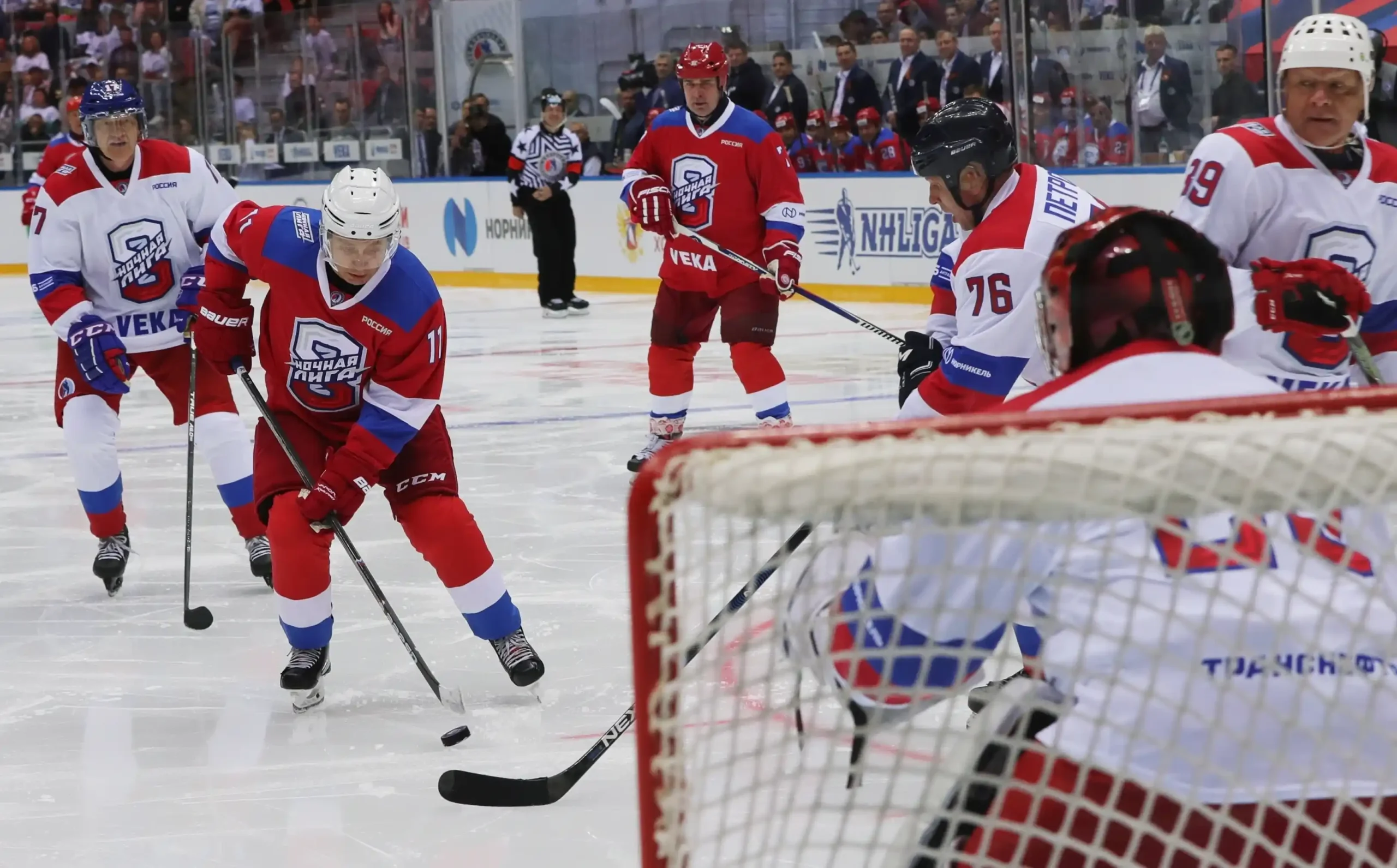The recent initiative to resume hockey matches between the United States and Russia, discussed in a phone call between Vladimir Putin and Donald Trump, once again highlighted the deep political undertones in sports. At first glance, the agreement on joint hockey matches appears simple, yet experts consider it another political victory for the Russian leader.
Geopolitics on the Ice Rink
According to The Guardian, hockey has always been more than just a sport for Putin. The Russian president is famously passionate about hockey and regularly participates in games, easily scoring goals against seemingly compliant opponents. However, hockey in Russia traditionally carries deeper geopolitical implications.
When Russia was banned from international hockey competitions following its invasion of Ukraine, the Kremlin viewed it as a painful insult. Such actions by the West only intensified Russia’s sense of isolation on the global stage.
During Soviet times, hockey was a genuine instrument of soft power. Players of the Soviet national team were soldiers of the Red Army, and their coach held the rank of colonel. These athletes lived and trained in barracks almost year-round. Matches against teams from the USA and Canada were viewed as ideological battles: the collective Soviet system versus individualistic American and Canadian professionals.
In the 1960s and 1970s, the USSR dominated hockey, winning five out of six Olympic gold medals. However, there were significant defeats that went down in sports and political history, such as the 1972 Summit Series, where the Canadians narrowly defeated the Soviet team in eight matches, and the famous “Miracle on Ice” at the 1980 Lake Placid Olympics, where the underdog US team unexpectedly won gold against the favored Soviet squad.
Contemporary Realities of Hockey Politics
Today’s situation again highlights the role of sport in big politics. The recent Four Nations tournament, featuring the USA, Canada, Sweden, and Finland, notably irritated the Kremlin. According to The Guardian, Russia’s absence from this hockey event hurt Putin’s pride, further emphasizing its isolation.
Russia’s return to international hockey would send a powerful political signal and represent a victory for Putin, especially amid the success of Alexander Ovechkin—the great Russian hockey player and Putin supporter—who is about to surpass Wayne Gretzky’s NHL goal-scoring record while playing for a Washington-based club.
According to Western experts, Donald Trump views Putin more as an equal partner than an adversary, preferring to see the world divided between two great powers. For Trump, the concept of a four-nation competition seems absurd, as his primary interest lies in the direct interaction between the US and Russia.
Thus, hockey, seemingly far from politics, once again demonstrates its influence and significance in contemporary international diplomacy.
This article was prepared based on materials published by The Guardian. The author does not claim authorship of the original text but presents their interpretation of the content for informational purposes.
The original article can be found at the following link: The Guardian.
All rights to the original text belong to The Guardian.


















